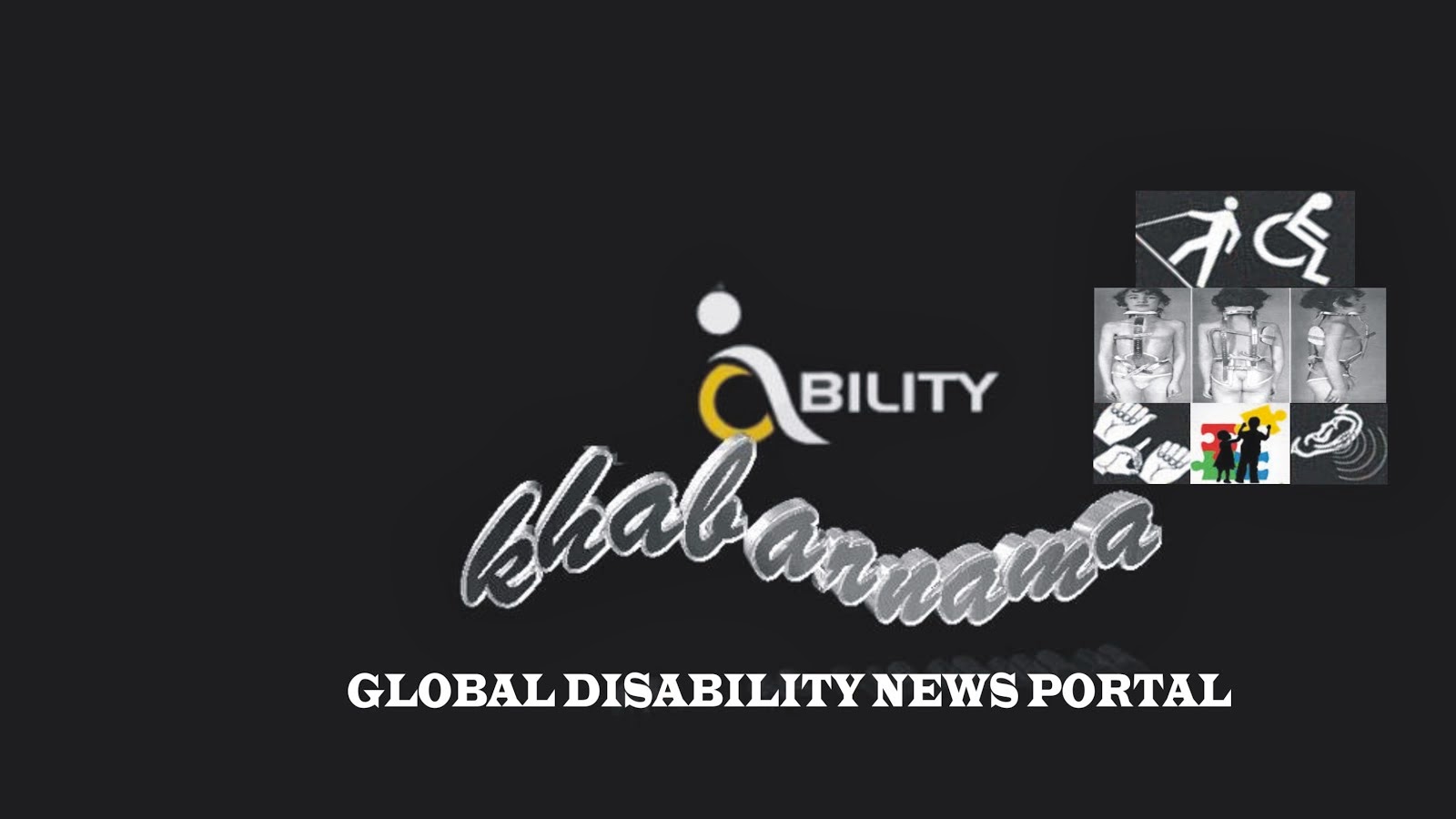Ashutosh Parab has a big evening ahead. As a banquet executive at a
five-star hotel in Mumbai, he is racing against time to set the hall up
for the day's gala. But unlike others in his position he isn't shouting
orders; in fact, he is not saying anything at all. But his fingers are
at work, gesturing his thoughts to his colleagues. The 26-year-old is
speech- and hearing-impaired. A relatively new entrant in the banqueting
section, Parab was till recently with the reservations division where
he spent close to three years. "I'm a bit nervous because I'm still
getting used to the systems in this section. But I've grown in
confidence because I know the organization is behind me," says Parab,
through a sign language interpreter.
******************************************************

Ashutosh and Vishal are among the scores of talented but youngsters with disabilities being accepted in the workplace by India Inc.
*************************************************}
Using a wheelchair has not slowed Bangalore designer Vishal Mishra down. Vishal began his stint with the firm as a designer a few years ago and is now an assistant manager, with a handful of subordinates working for him. "My disability doesn't come in the way as far as my work is concerned," he says.
Ashutosh and Vishal are among the scores of talented but youngsters with disabilities being accepted in the workplace by India Inc. Starting with small gestures in corporate social responsibility, Indian business houses are walking that extra mile and institutionalizing what can be called the 'disability initiative'.
People with disabilities account for just 1% of the Indian corporate workforce, but the quality of employment shows that a definite change is in the offing. For India Inc, it is a way to up its diversity play.
At watches-to-jewellery maker Titan, two blue-collar employees with physical disabilities were promoted to managerial positions after they completed their degrees. At Pune-based Cummins, a person with disability is a senior manager in the engineering department. At Sebi, India's capital market regulator, MBA grad Vishakha More, a blind person, is an assistant GM.
"We looked at their abilities, not disabilities, while assigning them jobs. And each of them has delivered beyond our expectations," says Arun Ramachandran, India-head, Cummins Turbo Technologies.
The local arm of US-based Cummins currently has 11 differently abled employees compared to just one five years ago. The number of such workers at Titan has risen to 110 in the last few years.
There are in fact establishments where those with disabilities form the majority. At EuroAble call centre, 98 of the 100 employees have some disability. EuroAble is the world's only call centre where those with physical disabilities handle thousands of customer queries and complaints for Eureka Forbes, its consumer durable parent. Then there is Yum Restaurants—it runs the KFC and Pizza Hut chains—which has almost doubled the number of employees with disabilities to 350 in five years. It plans to raise the number to 1,000 by 2015. At Mirakle Couriers, the show is entirely managed by deaf people.
In a tectonic shift in attitudes, companies are creating infrastructure for special employees and assigning them buddy partners to mentor and foster leadership qualities in them. Their assignments too are being rotated to give them varied experience. In fact, some of them are even training normal employees in sign language so they can communicate better with those who are hearing and speech impaired.
Most importantly, people with disabilities are not being patronized or discriminated against. "Their pay packets are at par with industry standards. We do not offer them any special concessions. We do, however, provide them with a comfortable working environment. For example, we have designed special workspaces with ramps. We also arrange to pick them up and drop them at their residences," says Marzin Shroff, COO, Eureka Forbes.
While firms across sectors are hiring people with disabilities, the trend is more pronounced in some sectors—food and beverage outlets, hotels, salons and airports. You will spot them as baristas, musicians, housekeepers, masseurs and cuisiniers.
"Currently, one of our staff with disability is being trained to become an assistant restaurant manager," says Niren Chaudhary, president, Yum Restaurants, adding that the fast food chain is on track with its plan to have a restaurant general manager with disability by 2015. "They are a good talent pool," says Niranjan Khatri, head-environment initiatives at cigarettes-to-hotels ITC. "Their attrition is merely 2% compared with the double digits for other employees."
At the banquet hall, Parab heaves a sigh of relief when he finishes his job for the day. He's done his bit and now it's time for the show. "I am aware that all kinds of opportunities are open for me. Why not grab them with both hands?" he asks.
Source : Economic Times , 30th September 2013

No comments:
Post a Comment